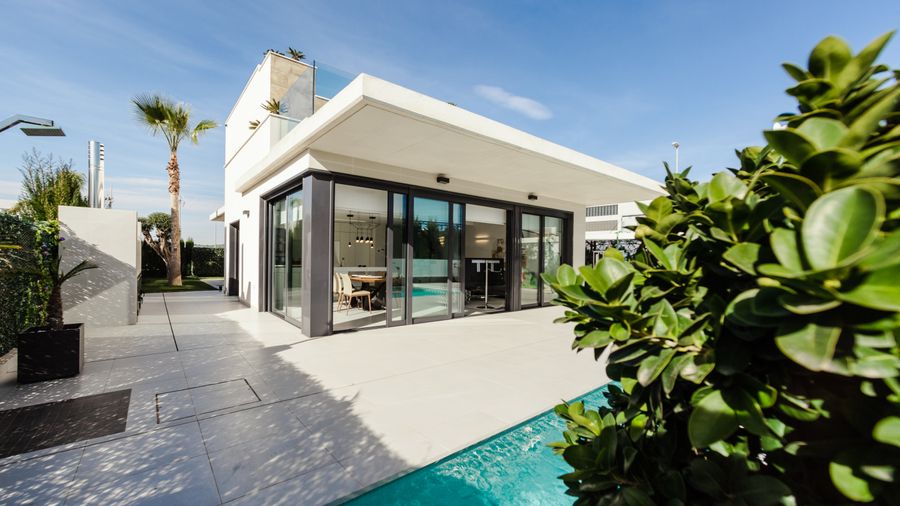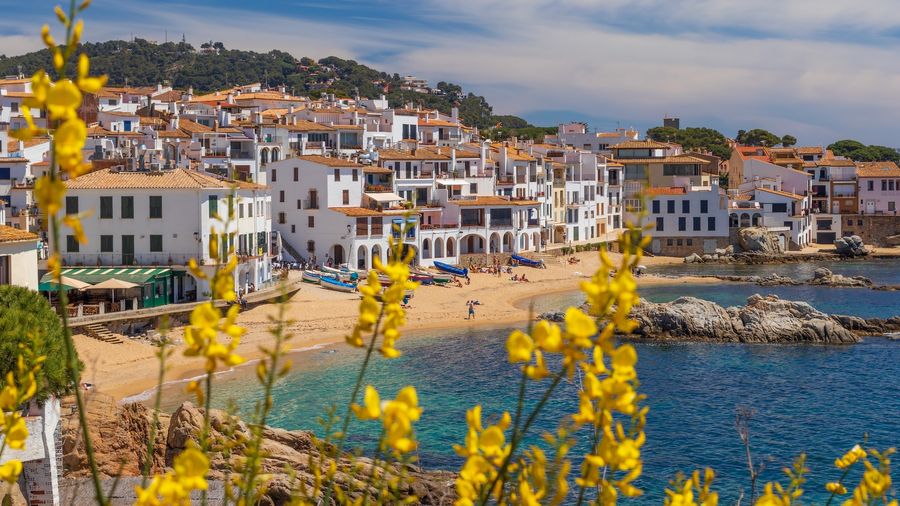How to buy a house in Spain? A step-by-step guide to buy a property in Spain
To buy a house in Spain, you will need to pay income tax, property tax, and a non-resident property tax. You may also need to pay VAT if you buy a new property.

Questions you will have answered in this article:
- What are the steps to buy a house in Spain?
- What is a non-resident property tax in Spain?
- How much do I need to pay in income tax in Spain as a non-EU resident?
- How much VAT do I need to pay if I buy a new property in Spain?
Buying a house in Spain as a non-EU resident
It is possible for a non-EU resident to buy a house in Spain, and there are no restrictions on such purchases. The main costs associated with buying a house in Spain are the property transfer tax, VAT (or IVA), notary costs, title deed tax, and land registration fee. Foreign buyers may also have to pay legal fees.
What are the steps to buy a house in Spain?
The steps to buy a property in Spain are as follows:
- Apply for a pre-approval
- Get your NIE
- Open a bank account
- Negotiation time
- Reservation contract
- Deposit agreement
- Official valuation
- Preparing the required documents
- Going to the notary and signing the title deeds
- Register the property
Step 1) Start looking for a mortgage - compare offers from banks!
Buying a property in Spain is relatively simple, but it can be time consuming and a lot of paperwork. However, there are a number of steps you can do parallelly.
Start by applying for a pre-approval via Hypotea.
- Applying for a pre-approval will demonstrate your intention to buy a property in Spain, and thereby having a valid reason for applying for NIE (described in step 2).
- Applying for a pre-approval via Hypotea will allow you to get offers from multiple banks based on your current financial situation. It will also give you a good overview of the bank landscape when buying a house in Spain. More importantly, the bank who gives you the best offer is also where you are gonna wanting to open up a bank account. Finally, when negotiating to buy a house in Spain, it is important to be a strong and attractive buyer. Taking out a mortgage from a Spanish bank can also be beneficial. (described in step 3). Compare offers thoroughly to understand the different types of interest rates, and which plan among those offered is the one you will finally aim for (as conditions may vary drastically).
- Hypotea will get you paired with a local Real Estate Agent - likely someone from your home country or someone that speaks your native language. You will quickly learn that it will be highly beneficial to rely on a real estate agent in Spain when you have found your dream home and it is time to agree on a price with the seller. More on this in step 4.
Step 2) How to get my NIE in Spain?
The NIE is a Spanish identification and tax number that is required for any official process or transaction in Spain. In order to buy a property in Spain, you will need to obtain a NIE number. The process to obtain a NIE number as a non-resident is relatively simple and can be done either from Spain or from your country of origin. You will need to demonstrate that you have a valid reason for applying for the NIE number, such as the intention to buy a property in Spain. Once you have obtained the NIE number, you will be able to proceed with the purchase of a property in Spain.
In order to obtain the NIE in Spain, you will have to fulfill the following requirements:
- 1) Proof of previous appointment
- 2) Passport or identity card from your country of origin
- 3) Form EX-15 of Application for Foreigner Identity Number. The EX-15 form is the standard application form for the Foreigner Identity Number (NIE) in Spain. This form must be completed and signed by the applicant or their representative, and submitted to the Spanish consulate in the applicant’s country of residence. The NIE is required for any foreigner living in Spain, and is necessary for carrying out various procedures such as applying for a visa or residence permit, getting a return authorization, or renewing a passport.
- 4) Completed and signed fee. You can apply for the NIE at the nearest Foreigners’ Office to your place of residence in Spain, through the Spanish Consulate or Embassy in your home country. Remember that you do not have to be a resident in Spain to apply for a NIE number, nor does having a NIE number automatically grant you residency status. Depending on the locale, you can receive your NIE Spain card number on the spot but it may take up to 4 or 5 days. Your NIE card spain will be white in color in an A4 paper size. The Spanish NIE number consists of a letter at the beginning and at the end with 7 numbers in between. Also, like a driver’s license, your NIE identification card will have your photo and your birth date.
Step 3) How to open a bank account in Spain?
In order to open a bank account in Spain, you will need a valid passport or other acceptable proof of identity, proof of address, and proof of your employment status. The exact process for opening a bank account will vary from bank to bank, but in general, the steps will be the same.
If you have already completed the first step in this guide and applied for a pre-approval, your research of banks and account options to find one that suits you have already started. Then, double check that you are eligible for the account and gather the required documentation. Finally, once you have your NIE you can visit the bank of your choice in person and request an account.
Step 4) Time to negotiate
So you have completed the first 3 steps. Congratulations! You are now in the position to start negotiating with sellers to get your dream home in Spain. By using Hypotea, you have hopefully secured the following:
- Pre-approval or a good idea of how much you can loan, and a bank account
- Partnered with a local Real Estate Agent
At this stage, the bank of your choice would need to know the price of the house to determine if the negotiated price is in line with market prices etc.
What is a non-resident property tax in Spain?
Non-resident property tax in Spain is a tax that is levied on those who do not reside in the country but own property within its borders. The tax rate is typically 24%, though it may be lower for residents of EU or E.E.A countries. There are various reliefs available for those who qualify, such as deductions for mortgage interest and property taxes.
How much do I need to pay in income tax in Spain as a non-EU resident?
If you are a non-EU resident and you own property in Spain, you will be subject to the IRNR (Non-Resident Income Tax) and real estate tax. The tax rates for non-residents vary depending on the income bracket you fall into. The first €12,450 you earn is taxed at 19%, while incomes between €12,450 and €20,200 are taxed at 24%. Incomes between €20,200 and €35,200 are taxed at 30%, and those between €35,200 and €60,000 are taxed at 37%. Incomes over €60,000 are taxed at 45%.
How much VAT do I need to pay if I buy a new property in Spain?
If you buy a new property in Spain, you will need to pay VAT (IVA) of 10% on the purchase price. For non-EU residents, the income tax rate is 24%. Non-resident property tax is 1.1% of the cadastral value of the property.







